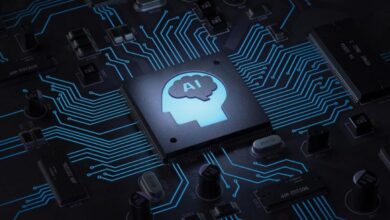Navigating Tomorrow: The Promises and Perils of Artificial Intelligence | by Silent Scientist’s Sphere | May, 2024

Artificial Intelligence (AI) stands at the frontier of technological innovation, poised to revolutionize various aspects of our lives. From enhancing everyday convenience to solving complex global issues, AI’s potential seems limitless. However, this rapid advancement brings significant ethical challenges that must be addressed to ensure a balanced and fair integration into society. This article delves into the future of AI by exploring its promising advancements and the ethical dilemmas it presents.
Advancements in Artificial Intelligence
- Healthcare Revolution AI is transforming healthcare with applications ranging from predictive analytics to personalized medicine. Machine learning algorithms can analyze vast datasets to identify patterns and predict patient outcomes, leading to early diagnosis and effective treatments. For instance, AI-powered diagnostic tools have demonstrated superior accuracy in detecting diseases such as cancer from medical imaging.
- Autonomous Systems Autonomous vehicles and drones represent significant strides in AI, promising to enhance transportation efficiency and safety. Self-driving cars, for example, can reduce human error-related accidents, while drones can revolutionize logistics and delivery services. These systems rely on sophisticated AI to navigate and respond to real-time environments.
- Natural Language Processing (NLP) NLP advancements are making human-computer interactions more intuitive. AI-driven virtual assistants like Siri and Alexa are becoming more adept at understanding and responding to human language, enabling more seamless user experiences. Additionally, AI in translation services is breaking down language barriers, facilitating global communication.
- Robotics, powered by AI, is advancing in both industrial and domestic settings. Industrial robots are increasing production efficiency and precision in manufacturing. Meanwhile, domestic robots are improving in tasks such as cleaning and caregiving, supporting independent living for the elderly and disabled.
- Data-Driven Decision Making AI’s ability to process and analyze large volumes of data is revolutionizing decision-making across various sectors. Businesses leverage AI for market analysis, customer insights, and operational efficiency. In finance, AI models predict market trends and manage investment portfolios, while in agriculture, AI optimizes crop yields and resource management.
Ethical Challenges of Artificial Intelligence
systems are only as unbiased as the data they are trained on. If the training data contains biases, the AI will likely perpetuate and even amplify these biases. This can lead to unfair treatment in areas such as hiring, law enforcement, and lending. Ensuring fairness requires ongoing efforts to scrutinize and mitigate biases in AI models.
The vast amounts of data required to train AI systems raise significant privacy concerns. Personal data used to enhance AI capabilities can be misused or inadequately protected, leading to potential breaches of privacy. It is crucial to establish robust data protection frameworks and regulations to safeguard individual privacy rights.
The automation of tasks through AI and robotics poses a threat to employment in various industries. While AI can create new job opportunities, it is likely to displace many existing jobs, particularly those involving routine and manual tasks. Addressing this challenge involves rethinking education and training programs to prepare the workforce for an AI-driven economy.
- Accountability and Transparency As AI systems make more decisions autonomously, determining accountability for those decisions becomes complex. The “black box” nature of some AI models, where the decision-making process is not transparent, exacerbates this issue. Establishing clear guidelines for accountability and enhancing the transparency of AI algorithms are essential steps toward responsible AI deployment.
- Ethical Use of AI in Warfare The potential use of AI in military applications, such as autonomous weapons, raises profound ethical questions. The prospect of machines making life-and-death decisions without human intervention is troubling and necessitates international agreements and stringent regulations to prevent misuse.
Balancing Advancements with Ethical Responsibility
The future of AI holds immense promise, but realizing its benefits requires addressing the ethical challenges it presents. Policymakers, technologists, and society at large must collaborate to develop frameworks that ensure AI advancements are aligned with ethical standards. This includes promoting transparency, protecting privacy, ensuring fairness, and preparing the workforce for future changes.
Moreover, fostering a culture of ethical AI development involves continuous dialogue and education on the societal impacts of AI. By proactively addressing these ethical considerations, we can harness the transformative power of AI to improve our world while safeguarding fundamental human values.
In conclusion, as we stand on the brink of an AI-driven future, balancing technological advancements with ethical responsibility will be key to shaping a world where AI serves the greater good.



